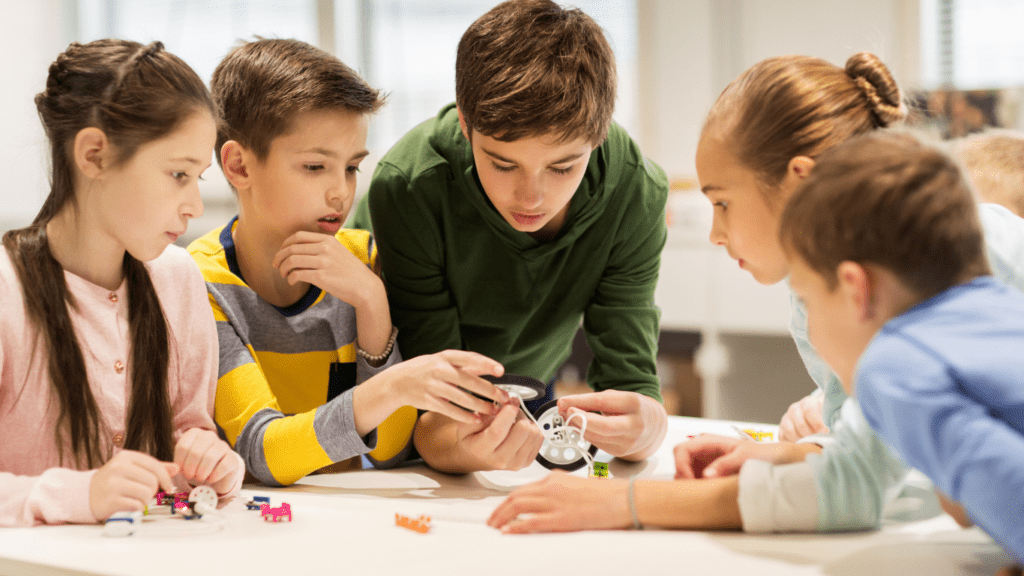Confidence is one of the greatest gifts we can give our children. It shapes how they see themselves, tackle challenges, and interact with the world. As a parent, I’ve learned that building confidence isn’t about shielding kids from failure but helping them embrace it as a stepping stone to growth.
Every child is unique, and what works for one may not work for another. That’s why understanding their individual needs and strengths is key. By fostering a supportive environment and teaching resilience, we can empower our kids to believe in themselves and their abilities. It’s not always easy, but the results are worth every effort.
The Importance Of Building Confidence In Children
- Children’s confidence directly impacts their ability to navigate challenges and form meaningful relationships. Confident children tend to approach new situations with curiosity rather than fear, enabling them to develop critical problem-solving and social skills. A solid foundation of self-assurance enhances resilience, helping them recover more effectively from setbacks.
- Building confidence promotes emotional well-being. When children believe in their abilities, they’re less likely to internalize failure as a reflection of their worth. They become more willing to explore opportunities and take calculated risks, essential for learning and personal growth.
- Providing consistent support and encouraging effort rather than perfection fosters an environment where children feel valued. Celebrating progress, rather than just outcomes, helps them see the value in persistence. By recognizing achievements and setting realistic expectations, I help my child gain a sense of accomplishment without pressure.
- Modeling confidence as a parent demonstrates how to approach challenges with a positive mindset. When I face difficulties with calmness and determination, my child learns to respond similarly. This reinforces their belief in their capacity to handle life’s uncertainties effectively.
Encouraging Positive Self-Esteem
Fostering positive self-esteem in children helps them build a strong sense of self-worth. Through deliberate actions and mindful communication, I focus on nurturing their inner confidence.
Recognizing And Praising Effort
Acknowledging effort encourages children to value persistence. I celebrate my child’s hard work rather than solely focusing on outcomes. For example, when they dedicate time to improve their reading skills, I praise their dedication, reinforcing that effort leads to growth. This approach teaches them to embrace challenges as opportunities to learn.
By emphasizing progress over perfection, I help differentiate between achieving goals and building resilience. Highlighting specific achievements, like mastering a challenging task, builds their confidence and shows that their abilities grow with effort.
Avoiding Comparisons With Others
Comparing children undermines their self-esteem and fosters insecurity. I focus on their unique strengths instead of measuring them against peers. For instance, when discussing academic achievements or sports, I highlight their personal improvement rather than ranking them.
Encouragement rooted in individuality strengthens trust and reduces pressure. I remind my children that their journey is theirs alone, which nurtures confidence and reduces feelings of inadequacy tied to external benchmarks.
Fostering Independence And Decision-Making

Encouraging independence helps children build the skills needed to make decisions and solve real-life problems confidently. By offering guidance without taking over, I help my child develop the ability to navigate challenges on their own.
Allowing Age-Appropriate Responsibilities
Assigning responsibilities helps children learn accountability and develop self-confidence. I ensure tasks match my child’s abilities, such as tidying toys for younger children or assisting in meal prep for older ones. Completing these tasks fosters a sense of accomplishment. Additionally, I provide encouragement and limited guidance, enabling my child to take ownership of their responsibilities and learn through experience.
Creating Opportunities For Problem-Solving
Giving children chances to solve problems strengthens their critical thinking and perseverance. I ask open-ended questions when obstacles arise, encouraging my child to explore solutions independently before offering suggestions. For instance, if a toy breaks, I guide them to consider if it can be repaired rather than replacing it immediately. This approach builds resilience and helps my child trust their judgment, reinforcing confidence over time.
Promoting Social Skills And Communication
Helping children build social skills and communicate improves their ability to interact positively and express themselves effectively. By fostering these abilities, I create a foundation for their confidence in relationships and social environments.
Encouraging Interaction With Peers:
Introducing children to diverse social settings allows them to develop interpersonal skills such as:
- playdates
- group activities
- team sports
provide opportunities for them to bond and collaborate. I support their efforts by encouraging participation and guiding them in resolving conflicts. For example, during disagreements, I teach my child to express their feelings calmly and find mutually acceptable solutions, strengthening their problem-solving and emotional regulation.
Celebrating small successes in peer interactions boosts their confidence. When my child shares a toy or takes turns, I acknowledge their behavior, reinforcing its importance. Gradually, they become more comfortable navigating different social scenarios, laying the groundwork for healthy relationships.
Teaching Active Listening And Empathy
Teaching active listening helps children understand others’ perspectives and respond thoughtfully. During conversations, I encourage my child to maintain eye contact, avoid interruptions, and concentrate on the speaker’s words. I model this behavior as well, ensuring they observe and learn its significance.
Promoting empathy involves guiding children to recognize emotions in others. Through storytelling and role-playing, I teach my child to identify and empathize with different feelings. For instance, when a classmate feels upset, we discuss how they might feel and explore ways to offer support. Practicing empathetic responses empowers them to form deeper connections and fosters mutual respect in their relationships.
Nurturing A Growth Mindset
Encouraging a growth mindset helps children view abilities as developable through effort and persistence. By shifting focus from fixed traits to continuous development, I can help children approach challenges with enthusiasm and resilience.
Embracing Mistakes As Learning Opportunities
Mistakes provide invaluable lessons, shaping children’s ability to persevere. I emphasize that errors are natural and integral to growth, normalizing the process of learning through trial and error. When my child struggles, I ask reflective questions like, “What did you learn from this?” or “What can you try next time?” Reinforcing effort rather than outcomes fosters resilience and motivates them to reframe setbacks as stepping stones.
I avoid criticism that links mistakes to self-worth and instead highlight successful responses. For instance, praising how they corrected an error during homework helps reinforce their ability to improve. By celebrating lessons learned from small failures, I’m building their confidence to tackle bigger challenges.
Setting Realistic And Achievable Goals
Clear, attainable goals encourage progress and reduce frustration. I work with my child to set specific objectives aligned with their current skills. When introducing a new goal, I break it into smaller steps. For example, if they want to improve their reading level, we might focus on reading one challenging storybook per week.
Tracking achievements provides motivation, so I celebrate incremental progress. If setbacks arise, I encourage adjustment rather than abandoning goals, teaching flexibility without losing momentum. By demonstrating that achieving goals is a process, I nurture their belief in their ability to grow and succeed.





